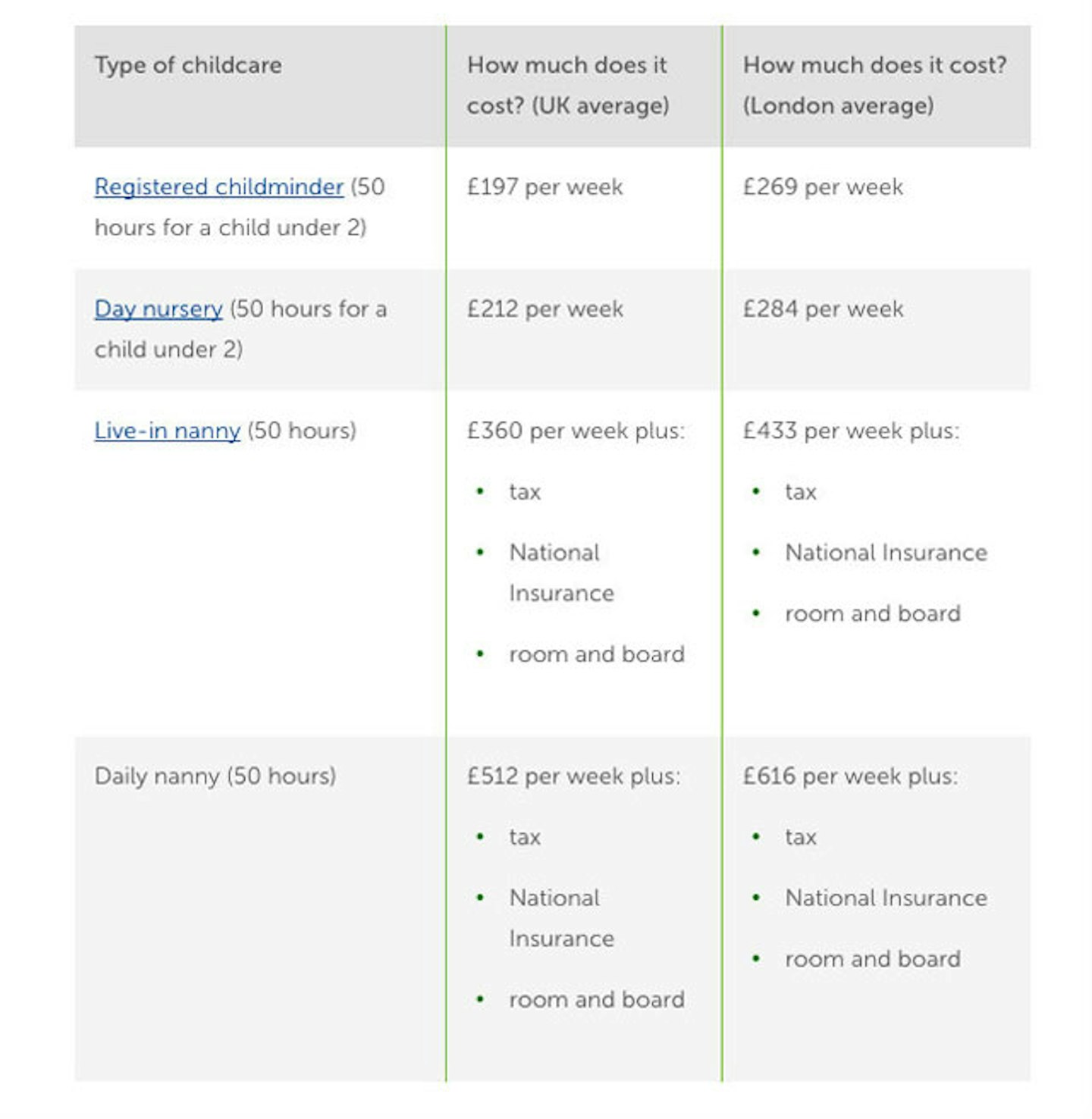It’s pretty strange: six months to a year ago you were feeling nervous about leaving work and entering the new world of motherhood, and now you’re worrying about returning to the office. But you’re not alone – unsurprisingly almost all mothers feel anxious about going back into work after maternity leave. And so they should. A hell of a lot has changed in your life: you’ve gone from managing complex projects at work and carefully curating your wardrobe to planning endless days around naps and feeds, and curating a single all-purpose outfit comprising clean(ish) jeans and a Selfish Mother sweatshirt – oh the glamour.
For many people, being on maternity leave is like living in a bizarre bubble and for those thinking about making tentative steps back into the real world, it’s all about finding the best plan for you and your family. Work is certainly nothing to be afraid of: most new mums find getting back to the day job is a welcome relief from the exhausting challenge of full-time life with a young child. I mean, does anyone know a new mum who wouldn’t give their right eye for a lunchbreak?
Some cheering thoughts about going back to the office:
*Everyone will be more than pleased to see you. If you’re worrying about your performance when you return, remember that while you’ve been off you’ve actually done a crash course in new skills which are extremely transferable. These include time management, multi-tasking, coping with stress and bullshit, and finally sheer bloody-minded determination. A lot of new mums going back to work also find their new sense of perspective helps a lot with the day-to-day dramas.
*As long as there are some women in their thirties or older in your workplace, the chances are you’ll find a support group of other mums you never knew existed before. They’ll be there for you on your wobblier days and they’ll be amazing.
*Going back to work is a great excuse to sort out your look. Your body’s probably still getting back to its ‘new normal’ so don’t spent a vast amount on a complete new wardrobe – but do make sure you buy some good up-to-date, low-maintenance capsule pieces (for those rushed early morning starts).
Returning to work: know your rights
Yes it’s intimidating for most of us, but as long as your employer is fair there are a million different ways you can make returning to employment after maternity leave work brilliantly for you.
Get your timings right
When you begin the conversation with your employer about your return, you have to make sure you give them eight weeks’ notice as to when you’re coming back.
As long as you’ve been away for under a year, or a year to the day, you absolutely have the right to return to the same job on the same terms and conditions as you were on when you left, if that’s what you want. If this isn’t possible, for whatever reason, you have the right to be offered a similar job on terms and conditions at least as good as your previous role. If your role has become redundant you should be offered a suitable alternative vacancy. If there isn’t one, you may be entitled to redundancy pay.
You also have the right to receive any pay rises or improvements in terms and conditions for your job that took place while you were on leave. In addition, your holiday entitlement accrues just as it would if you had been working, so make sure it’s added on to your leave at the end. Some companies will pay you the monetary value of those days instead – useful cash for the back-to-work wardrobe!
Choosing the best childcare
When you’re considering going back to work the first thing to do is look at your childcare options. Can grandparents, friends or other mums help out with childcare? Would you like a nanny, nanny-share or au pair so your children can stay at home while you’re out? Nurseries are another option – research is crucial as the quality of care varies wildly, and very good nurseries tend to have long waiting lists.
There are pros and cons to all of these options. Nannies are great – they provide a loving safe, and familiar environment for your child, but they don’t come cheap. Some nannies are happy to live in with your family which saves them paying rent and lowers the cost, but do bear in mind they’re another mouth to feed and another person to have around the house.
Au Pairs tend to be younger women looking to work on their language skills and are cheaper by the hour so you can save on costs, but they’re also less skilled than a qualified nanny and language barriers can be a problem.
Make sure you interview extensively and double and triple check all references you get in – recommendations from people you already know are the best place to start, but remember: childcare is very personal. The nanny your best friend says is Mary Poppins could turn out to be a Dementor as far as your child is concerned! Also be prepared to have a plan B if your child isn’t happy with your first arrangement – you’ll find what works for them eventually.

Paying for childcare
Childcare costs are an enormous part of the reason so few women are still able to go back to work, particularly in the south east. If you’re struggling to make the numbers work ask your employer about the childcare voucher scheme, which gives working parents tax-free vouchers to use on childcare. If you’re eligible, you and your partner can both exchange up to £243 per month of your gross salary for childcare vouchers which could make all the difference.
Flexible working after maternity leave
To request flexible working, you need to have worked for your employer for at least 26 weeks (including maternity leave). But remember that you only have the right to ask for flexible working - not the right to be given it.
Many more people, not just new parents, are embracing home-working and flexible hours so your employer should be open to discussing this, but it’s important to make sure you know what you need to secure before you enter negotiations – if you have dealbreakers about times you need to arrive or leave make sure that is clear. Many couples stagger their days now, so mum gets to work early while dad does the mornings, and at the end of the day mum’s back in time for the evening routine. Every couple has different commitments and it’s important to be realistic about what’s possible. Basically you’re going to need military precision in your timekeeping from the moment you wake until the minute your precious little ones fall asleep. So planning is going to be everything.
If your employer agrees to your suggestions, keep in mind that it typically takes around 14 weeks from your request for flexible working to implementing the new arrangement so make sure you build all this into your timeline.
If you feel at any point you’re not being treated fairly or have any other questions you can ask the Equality Advisory Service, who are absolutely there to help.
Parental leave
Once you have a family, don’t forget you are also entitled to ask for some Parental Leave from work. You must give 21 days’ notice and this is usually unpaid, unless your employer offers paid parental leave, but lots of parents find it handy from time to time.
It’s different for everyone
The truth is that some employers have established great working environments for working parents, and others less so. How smoothly your transition goes will depend on the industry you’re in and your individual workplace. But take heart – a majority of working mums say they’re happier than if they’d stayed at home with their children – and many people believe their children are happier and healthier for having two working parents. Oh, and don’t forget the lunchbreak – make sure you take it every day!
